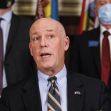States across the country are deciding to no longer offer the additional $300 in federal pandemic unemployment benefits for their residents. The move will also end benefits entirely for those who were not traditionally eligible for unemployment insurance, such as gig-workers, freelancers, individuals who had exhausted their benefits, and those without the minimum required employment history.
The American Rescue Plan, President Biden’s $1.9 trillion stimulus bill, extended an additional $300 a week in unemployment benefits on top of a state’s own payments until September 6, 2021. It expanded qualifying professions to part-time workers, gig economy workers, and freelancers. However, some states have decided to end these payments prematurely. Texas Governor Greg Abbott, just one of the 21 states making the change, supported the move emphasizing “the Texas economy is booming” and there are plenty of jobs for those currently receiving unemployment benefits.
All states that support the premature discontinuation of the $300 weekly federal benefits are led by Republican governors. Lawmakers in those states argue that businesses in their jurisdictions are struggling to find workers, which they claim is directly caused by the generous weekly unemployment supplement that is scheduled to end in early September.
Just as the use of federal benefits is political, receiving a COVID-19 vaccine has become polarized as well. According to the Centers for Disease Control and Prevention (CDC) data, all the states on the top 20 list for vaccine distribution voted for President Biden in the 2020 Presidential election, while 16 of the bottom 17 states voted for President Trump. The push for people to return to work is often coupled with sentiments of restarting the economy as well as pushing an individual’s choice to vaccinate, or not.
By early July, 21 states will end their participation in the federal government supplemental unemployment benefit payments. Some of these states include Arizona, Georgia, Idaho, Mississippi, Texas, and Wyoming. This is estimated to impact 3.4 million people, while 2.5 million are expected to lose benefits altogether.
Arizona, Montana, and Oklahoma are all offering incentive bonuses for finding work and returning to the workforce in lieu of continued unemployment benefit payments. Arizona’s “Return to Work” campaign awards eligible individuals a $2,000 Return to Work Bonus for working eight 40-hour weeks which must begin between May 13 and September 6, 2021.
In other states, like in Connecticut where they are offering a return to work incentive bonus along with continuing weekly unemployment benefits, the narrative is often about public safety over the need to restart the economy. States and lawmakers who oppose the measure argue that the lack of childcare, fear of infection, and inconsistent school hours are the main reasons why healthy, eligible workers have not returned.
The CDC estimates that about 61.3% of American adults have been at least partially vaccinated against the COVID-19 virus and almost half of all American adults have been fully vaccinated. Not receiving a vaccine, or returning to work where half of those in the office haven’t received a vaccine either, is a worry that many workers face on top of the CDC’s revised guidance on the use of masks by vaccinated individuals both inside and outside.
Recent studies are challenging the idea that unemployment benefits make workers not search for work. Researchers have found that unemployment benefits “have little to no impact on people’s motivation to seek work.” A Federal Reserve Bank of Chicago study conducted in the summer of 2020 amid the heat of the COVID-19 pandemic found that unemployment benefits are actually a successful incentive to push job seekers to look for new work rather than a disincentive to return to the workforce.
Additionally, a University of Chicago study found that more generous benefits were even more beneficial for the economy than previously projected. Those who received larger sums of money were more likely to spend more, not save or hoard the benefits, as well as look for work more vigorously. Economists are predicting that cutting these benefits will cause these states’ economies to decline and reduce economic activity altogether.






